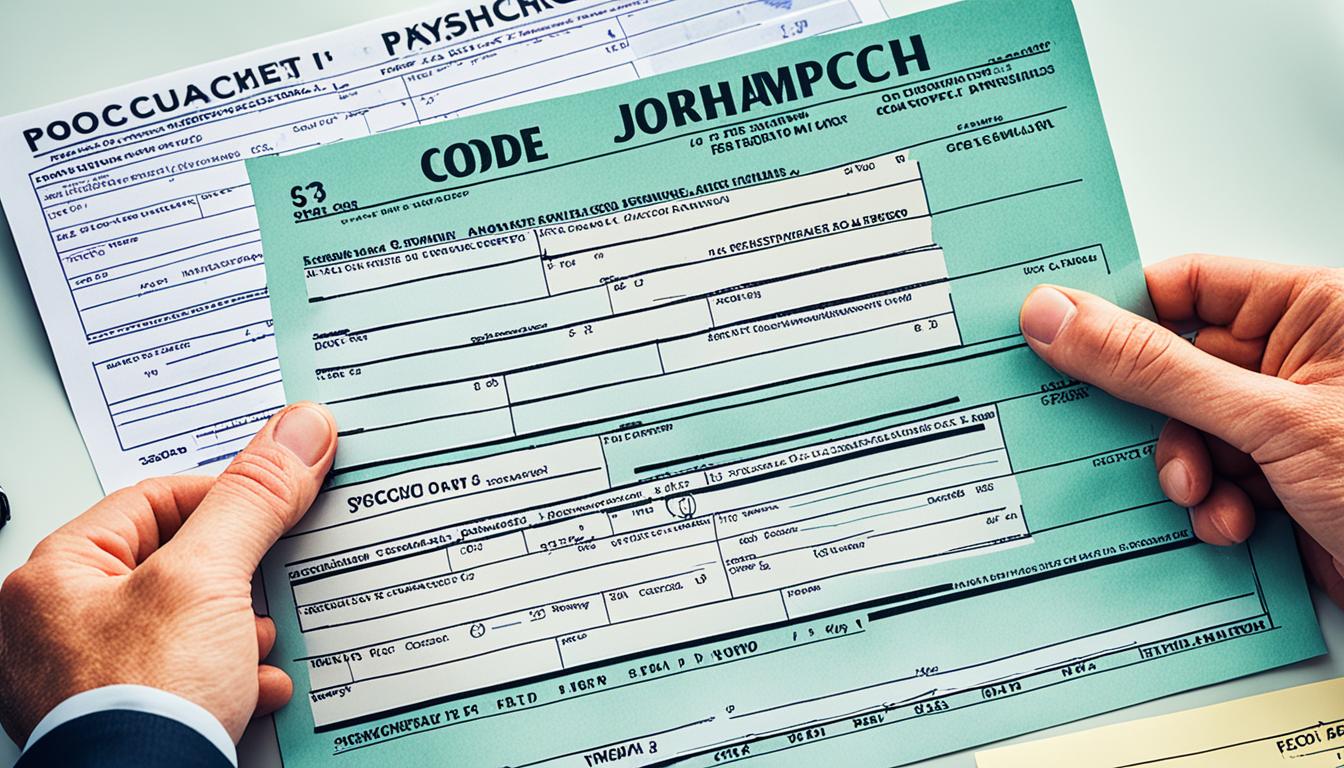If you’re considering taking on a second job in the UK, it’s essential to understand the tax implications and how to manage multiple employment tax codes effectively. This comprehensive guide will provide you with everything you need to know about tax codes for second jobs, ensuring you can navigate the complexities with confidence.
Many individuals opt for a second job to boost their income or as a stepping stone towards starting their own business. However, managing your tax code for a second job is crucial to avoid any surprises or penalties.
Throughout this guide, we will explore how your tax code for a second job may affect your income tax, National Insurance contributions, benefits, and pensions. By understanding these factors, you can make informed decisions and maximize your additional income.
So, whether you’re looking to explore a new career path, diversify your income sources, or simply earn some extra money, keep reading to discover all you need to know about managing your tax code for a second job in the UK.
Can My Employer Stop Me From Having a Second Job?
When considering taking on a second job, it’s important to understand whether your employer can prevent you from doing so. Typically, you should refer to your employment contract to determine if there are any specific restrictions or clauses regarding second employment.
Employers may have valid reasons for preventing their employees from taking on other jobs. Common concerns include potential conflicts of interest or the risk of bringing the company into disrepute. In such cases, they may have policies or clauses in employment contracts that restrict employees from engaging in additional employment.
However, if your contract does not explicitly mention any limitations on having a second job, your employer generally does not have the authority to stop you from pursuing another source of income. It’s crucial to review your contract thoroughly and seek legal advice if you are unsure about any provisions.
Keep in mind that even if your employment contract does not expressly prohibit a second job, there may still be circumstances where it could be deemed a conflict of interest or detrimental to your employer’s reputation. If you plan to take on another job, especially in a similar industry or with a competitor, it’s recommended to communicate openly with your employer and discuss any potential conflicts to maintain a transparent and professional relationship.
Ultimately, it is essential to understand the terms of your employment contract and engage in open communication with your employer to navigate any potential conflicts or restrictions that may arise from having a second job.

Key Points
- Check your employment contract for any restrictions on having a second job.
- Employers can prevent second jobs if there are specified clauses in the contract.
- Common reasons for employers restricting second jobs include conflicts of interest and concerns about the company’s reputation.
- If your contract does not mention restrictions, your employer generally can’t stop you from having a second job.
- Communication and transparency are crucial in discussing potential conflicts of interest with your employer.
What Are My Rights When Working a Second Job?
Regardless of whether it’s your first or second job, you have certain rights as an employee. These rights include job title, responsibilities, pay, and working hours. It is important to have an employment contract that clearly outlines these rights and the terms of your employment. The employment contract serves as a legal document that protects both you and your employer, ensuring that both parties understand their rights and obligations in the working relationship.
When it comes to job title, your contract should clearly state the position or positions you hold within the company. This is important as it defines your role and establishes the authority and responsibilities you have within the organization. Make sure that your job title accurately reflects the work you will be doing.
Your contract should also outline your job responsibilities. This includes the tasks and duties you are expected to perform in your role. It is crucial to understand what is expected of you to ensure that you can fulfill your obligations effectively.
Pay is another important aspect covered in your employment contract. Your contract should specify your salary or hourly rate of pay, as well as any additional compensation or benefits you may be entitled to. This ensures that you are aware of how your pay is calculated and what you can expect to receive from your employer.
Working hours are another key consideration. Your contract should clearly state the normal working hours for your position and any overtime arrangements that may apply. This ensures that you understand when you are expected to be at work and when you may be required to work additional hours.
In addition to the rights outlined in your employment contract, there are also laws in place to protect workers. For example, the National Minimum Wage sets the minimum amount that employers must pay their employees. This ensures that workers receive a fair wage for their work and helps to prevent exploitation.
There are also limits on working hours to prevent employees from being overworked or experiencing fatigue. These limits ensure that you have sufficient rest periods and time off to maintain a healthy work-life balance.
Remember, understanding your rights when working a second job is crucial to protect yourself and ensure fair treatment in the workplace. Familiarize yourself with your employment contract and the laws that apply to your situation. If you have any concerns or questions, consult with your employer or seek legal advice.
Examples of Employee Rights
- Job title: Clearly defined position within the company
- Responsibilities: Specific tasks and duties expected in your role
- Pay: Salary or hourly rate, along with any additional compensation or benefits
- Working hours: Normal working hours and any applicable overtime arrangements
Comparison of Employee Rights
| Employee Rights | Main Job | Second Job |
|---|---|---|
| Job Title | Marketing Assistant | Sales Associate |
| Responsibilities | Assist with marketing campaigns and projects | Provide customer service and generate sales |
| Pay | £20,000 per annum | £10 per hour |
| Working Hours | 9 am to 5 pm, Monday to Friday | 6 pm to 10 pm, Saturday and Sunday |

Income Tax on Second Jobs
When working a second job, it is important to understand the income tax implications and how it may affect your overall tax liability. In the United Kingdom, individuals are entitled to earn a certain amount of money without paying income tax. This tax-free income is known as the Personal Allowance.
For the 2024/25 tax year, the Personal Allowance is £12,570, which means you can earn up to this amount without being subject to income tax. If your combined income from both your main job and second job falls below this threshold, you can split your Personal Allowance between the two jobs.
However, if one of your jobs pays more than the Personal Allowance, it is generally beneficial to have the allowance applied to the higher-paying job. This ensures that you maximize your tax-free income and minimize your overall tax liability.
Example
Let’s say you have a main job that pays £15,000 per year and a second job that pays £8,000 per year. Your combined income from both jobs is £23,000, which is below the Personal Allowance of £12,570.
In this scenario, you can split your Personal Allowance between the two jobs. By doing so, you will not have to pay income tax on the first £10,430 of your combined income (£12,570 – £2,140).
Calculation
Main Job Income: £15,000 after tax
Second Job Income: £8,000
Combined Income: £23,000 after tax
Personal Allowance: £12,570
Remaining Allowance for Second Job: £12,570 – £2,140 = £10,430
| Income | Income Tax Rate | Tax Payable |
|---|---|---|
| Main Job Income (£15,000) | 20% | £0 |
| Second Job Income (£8,000) | 20% | £0 |
| Total Income (£23,000) | £0 |
In this example, both your main job income and second job income fall below the Personal Allowance, resulting in no income tax payable on either job.
It’s important to note that tax rules and rates may vary from year to year, so it’s essential to stay updated with the latest information from HM Revenue and Customs (HMRC) or consult a tax professional for personalized advice.

Tax Codes for Second Jobs
Understanding the tax codes for second jobs is crucial when managing your income and ensuring you’re meeting your tax obligations. While your main job typically uses the tax code 1257L, representing the tax-free Personal Allowance, your second job will have a different tax code based on its tax bracket. Let’s explore the various tax codes for second jobs to help you navigate the UK tax system effectively.
Main Job Tax Code: 1257L
Your main job tax code, 1257L, indicates that you are entitled to the tax-free Personal Allowance, which for the 2024/25 tax year is £12,570. This means that the first £12,570 you earn in your main job is free from Income Tax. It’s important to ensure that your employer has applied the correct tax code to your main job to avoid paying unnecessary tax.
Tax Codes for Second Jobs
When you take on a second job, your tax code will differ from your main job. The specific tax code assigned to your second job depends on its tax bracket. Here are the most common tax codes for second jobs:
| Tax Code | Tax Bracket |
|---|---|
| BR | Basic Rate |
| D0 | Higher Rate |
| D1 | Additional Rate |
It’s essential to check the tax code assigned to your second job to ensure that the correct amount of Income Tax is deducted. Failing to do so may result in underpayment or overpayment of tax, leading to potential penalties or refunds.
Here is an example to illustrate how the tax codes for second jobs work:
- Let’s say your main job is taxed under the code 1257L, and your annual income from this job is £25,000.
- If your second job falls under the basic rate tax bracket, it will be assigned the BR tax code.
- If your second job pays £10,000 per year, you will be taxed at the basic rate (20%) on this income, as the Personal Allowance has already been used in your main job.
Remember to regularly review your tax codes and inform HMRC if you believe any adjustments are required. This will help you avoid any potential tax discrepancies or issues with your multiple employment tax codes.
National Insurance on a Second Job
When you have a second job, it’s important to understand your National Insurance obligations. National Insurance is a contribution that individuals in the UK make towards certain state benefits, such as the State Pension and Maternity Allowance.
If you earn above £242 per week in the 2024/25 tax year, you will have to pay Class 1 National Insurance contributions. These contributions are deducted from your earnings and are calculated as a percentage of your income.
If you have multiple jobs and earn more than £242 per week in both of them, you will have to pay National Insurance on both jobs. This ensures that you receive the appropriate benefits and entitlements associated with each employment.
It’s essential to be aware of your National Insurance obligations when working a second job. Failing to pay the correct amount of National Insurance can result in penalties and a loss of certain benefits.
Class 1 NI Contribution Rates for the 2024/25 Tax Year
| Earnings | Employee Contribution Rate | Employer Contribution Rate | Total Contribution Rate |
|---|---|---|---|
| Up to £184 per week | 0% | 0% | 0% |
| £184.01 – £967 per week | 12% | 13.8% | 25.8% |
| Above £967 per week | 2% | 13.8% | 15.8% |
In the 2024/25 tax year, the Class 1 National Insurance Contribution rates are as follows:
- Up to £184 per week: 0% employee contribution, 0% employer contribution
- £184.01 – £967 per week: 12% employee contribution, 13.8% employer contribution
- Above £967 per week: 2% employee contribution, 13.8% employer contribution
It’s worth noting that National Insurance contributions are calculated separately from Income Tax. Even if you are not required to pay Income Tax on your second job, you may still be required to pay National Insurance contributions.
By understanding your National Insurance obligations and ensuring you pay the correct amount, you can ensure you receive the appropriate benefits and entitlements associated with your second job.

Conclusion
Taking on a second job can be a great way to boost your income. However, it’s crucial to understand the tax implications and effectively manage your multiple employment tax codes. By familiarizing yourself with the tax code for a second job in the UK and ensuring you’re paying the correct amount of tax, you can make the most of your additional income without any surprises or penalties.
Remember, the key to successfully managing multiple employment tax codes is staying informed and proactive. Keep track of your tax codes for each job and regularly review them to ensure accuracy. If you have any specific questions or concerns, it’s always advisable to consult HMRC or seek professional advice.
With the right knowledge and careful attention to managing your tax codes, you can navigate the complexities of second job taxation in the UK confidently. Stay informed, stay compliant, and make the most of your hard-earned money.




















No Comments
Leave a comment Cancel